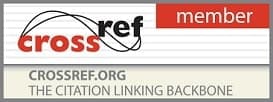Vol. 7, Issue 3, Part D (2024)
Evaluation the serum level of Dehydroepiandrosterone sulfate associated with STEMI and NSTEMI in a sample of Iraqi male patients
Author(s):
Hadeel Abdul Jaleel Ibrahim and Estabraq Al-Wasiti
Abstract:
Background: Acute coronary syndromes (ACS) are a group of conditions characterized by a sudden reduction in blood supply to the heart, including ST-segment elevation myocardial infarction (STEMI), non-ST elevation myocardial infarction (NSTEMI), and unsTable angina. ACS affects over 7 million people globally each year, with over 1 million hospitalizations in the USA alone. Dehydroepiandrosterone Sulfate (DHEAS) is the most abundant steroid hormone in human plasma, synthesized in the adrenal cortex. High DHEAS levels are considered a marker of longevity, while decreased levels are linked to various conditions such as severe stress, anorexia, and adrenal insufficiency. The study aimed to determine DHEAS levels in men with ACS to explore the potential of DHEA supplementation in treatment regimens. Method: case-control study analyzed data from 150 male patients with ACS at Al-Emamin Al-Khadhemain City Hospital between April and October 2023. Participants, aged 40-69 years, were divided into three groups: 76 controls, 38 STEMI patients, and 38 NSTEMI patients. Serum DHEAS levels were measured using the enzyme-linked immunosorbent assay (ELISA) method.
Results: Showed a significant negative correlation between DHEAS levels and ACS in the STEMI and NSTEMI groups, with P-values of 0.002 and 0.048, respectively. The control group also showed a highly significant negative correlation (P < 0.001). Other parameters did not show a significant correlation with DHEAS. Conclusion: serum DHEAS levels are significantly negatively associated with STEMI and NSTEMI in middle-aged and older Iraqi men.
Pages: 276-282 | 1245 Views 214 Downloads
How to cite this article:
Hadeel Abdul Jaleel Ibrahim and Estabraq Al-Wasiti. Evaluation the serum level of Dehydroepiandrosterone sulfate associated with STEMI and NSTEMI in a sample of Iraqi male patients. Int. J. Clin. Diagn. Pathol. 2024;7(3):276-282. DOI: 10.33545/pathol.2024.v7.i3d.613






